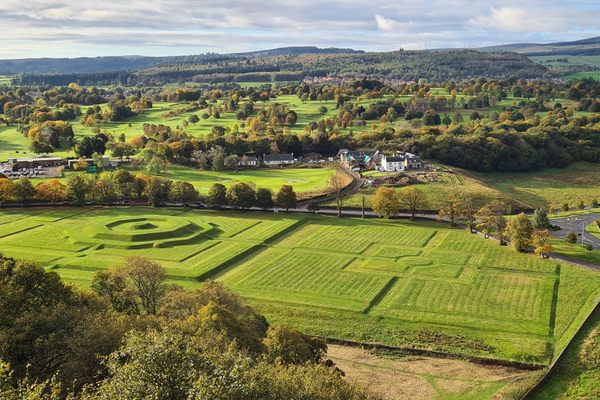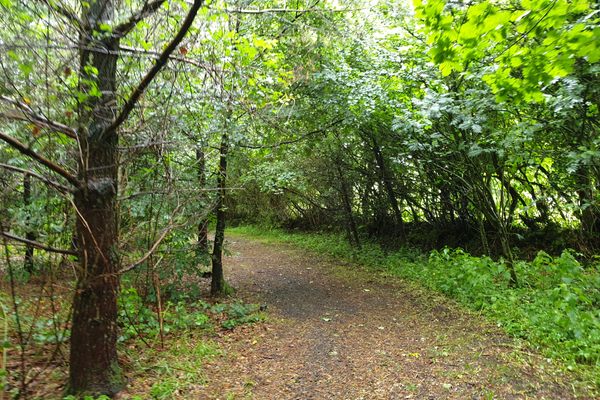About
Chicago's Lincoln Park is known as the largest park in the city. However, it's much less common knowledge that many of the trees and plants originally came from a forest preserve more than 20 miles away.
Lincoln Park has expanded from its much smaller origins into the massive park that exists today. It was created by filling in miles of shoreline along Lake Michigan. To accomplish this, topsoil and fill were needed, as well as plants and trees.
All were in short supply in the big city, but there was plenty in an area of Lemont now known as Waterfall Glen. The Lincoln Park Commission purchased 100 acres to establish a nursery and a place to gather fill for the lake.
Dirt, rock, trees, and plants were loaded onto barges in the nearby Chicago Sanitary and Ship Canal. They were then sent upstream to the city for the park's construction.
Now all that remains of the former nursery are pieces of the stone building that sat at the site. The most prominent feature is a large stone doorway bearing the inscription "LPS 1921."
Related Tags
Know Before You Go
To reach the site, travel to the parking lot at the corner of Bluff Road and Cass Avenue. From there, follow the road into the park past the gate.
When you come to the fork, follow the road to the left. Continue following the road until you come to a T in the road. Turn left here, and follow this gravel road until you can make a left turn on the main Waterfall Glen loop trail(this is marked). The ruins will be shortly past this point on your right.
Published
January 7, 2021































